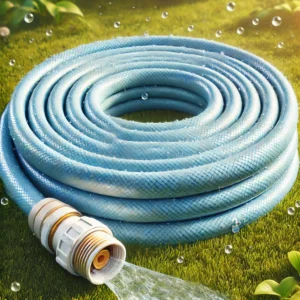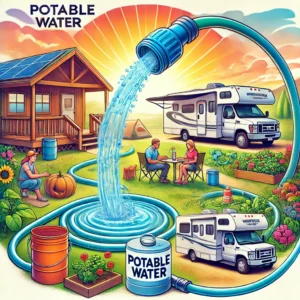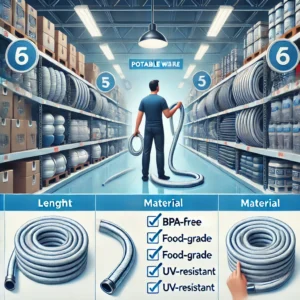The Ultimate Overview to Potable Water Hoses: Everything You Need to Know
When it concerns preserving healthy and balanced hydration for your household, animals, and plants, guaranteeing a safe and tidy water resource is essential. This is especially true for scenarios like motor home camping, boating, or outdoor horticulture, where you count on a potable water hose to supply alcohol consumption water or water for various other personal use. Yet what exactly is a potable water hose, why should you use it, and just how do you choose the very best one? In this thorough guide, we’ll discover whatever you require to learn about safe and clean water hoses.
What is a Potable Water Hose?

A potable water hose is a hose especially created for providing alcohol consumption water or water that is safe for human intake. These hoses are made from materials that are devoid of damaging chemicals, like BPA (Bisphenol A) or lead, which can otherwise contaminate the water. Safe and clean water hoses are frequently made use of in RVs, boats, outdoor camping, horticulture, and outside activities where clean, drinkable water is vital.
Unlike normal garden hoses, which might be made of materials that can seep chemicals into the water, safe and clean water hoses are made with food-safe, non-toxic products to ensure the water continues to be clean and safe to drink. They are often marked as “drinking water risk-free” or “FDA-approved” to satisfy the criteria for risk-free water usage.
Please note that this article contains Amazon affiliate links, meaning we may earn a small commission if you make a purchase through them, at no extra cost to you.
Why Should You Use a Potable Water Hose?
There are numerous engaging factors to utilize a potable water hose as opposed to a routine garden hose, specifically when it comes to health, safety and security, and convenience.
1. Health and Safety
- The primary factor to utilize a potable water hose is to make sure that the water you are eating or utilizing for cooking is safe. Routine hoses are commonly made from materials that contain phthalates, lead, and BPA, which can leach into the water, especially when revealed to sunlight or high temperatures. Over time, this can cause infected water that is unsafe to drink.
- Potable water hoses, on the other hand, are made from food-grade products that satisfy government and regional security standards, ensuring the water you’re consuming stays free of harmful chemicals and preferences fresh.
2. Preference and Smell
- Regular hoses can likewise trigger the water to taste or smell undesirable due to the materials used in their building and construction. Drinkable water hoses are created to eliminate this problem by utilizing products that protect against the water from taking in damaging chemicals, maintaining it fresh, tidy, and odor-free. Whether you’re utilizing the hose for alcohol consumption water, rinsing fruits and vegetables, or filling out a cooler, the water high quality will certainly stay high.
3. Convenience Safe and clean
- water hoses are functional, making them ideal for a vast array of uses. They are optimal for usage in RVs, boats, campers, and exterior activities. You can use them to fill your RV’s water container, supply drinking water for your watercraft, and even use them at camping sites. On top of that, they serve for garden watering if you’re worried concerning making use of tidy, secure water for your plants, especially when you are watering edible plants.
4. Sturdiness and Flexibility
- Safe and clean water hoses are constructed to stand up to various outdoor conditions, making them highly durable. They can withstand UV damage, deterioration, and high temperatures, ensuring long-term usage. Numerous drinkable water hoses are adaptable and very easy to coil, so you can store them without headache after use.
Just how Does a Potable Water Hose Work?
A potable water hose works likewise to a regular garden hose but is made with safe products to avoid contamination. The water moves via the hose from a water source, such as a spigot, faucet, or container, and is carried to its destination, such as a RV’s water tank, a boat’s fresh water supply, or for direct drinking. These hoses are usually enhanced to hold up against stress, and they frequently feature a durable outside to safeguard the inner lining from UV rays, wear, and environmental aspects.
Secret Features of Potable Water Hoses:

Food-Safe Materials:
- Potable water hoses are made from PVC (polyvinyl chloride), rubber, or hybrid compounds that meet FDA and NSF (National Sanitation Foundation) requirements for drinking water safety.
UV Protection:
- Potable hoses are often developed with UV-resistant products to prevent destruction from long term sun direct exposure.
Adaptability:
- These hoses are made to be versatile, so they can quickly be coiled for storage space and unrolled for use. Longevity: Potable water hoses are constructed to take care of various water pressures, exposure to the components, and daily wear and tear.
No Chemical Leaching:
- They are devoid of chemicals like lead, BPA, or phthalates, which can seep into the water.
When to Use a Potable Water Hose?

A potable water hose is normally used in any type of circumstance where tidy, drinkable water is necessary. Right here are some of the most typical circumstances in which you should use a potable water hose:
1. Recreational Vehicle and Camper Use
- When taking a trip in a recreational vehicle or camper, you count on water from outside sources for day-to-day tasks like drinking, food preparation, showering, and cleaning. Utilizing a potable water hose to connect your recreational vehicle or camper to a fresh water makes certain that you’re obtaining clean, secure water. You can use it to fill up your onboard water storage tanks, rinse, or clean meals.
2. Boating
- Boats that have freshwater systems, such as sinks and showers, need a secure water supply. Utilizing a potable water hose to load your watercraft’s water storage tank or to link to a dock’s water makes sure that you’re not introducing harmful chemicals right into the system. It’s specifically crucial when you’re on the water for long periods and rely on clean water for alcohol consumption or cooking.
3. Outdoor Camping and Outdoor Activities
- When you’re camping or participating in various other outside tasks, it’s necessary to have access to clean water. A potable water hose can be used to fill out water containers, laundry cooking tools, and even supply alcohol consumption water if you’re at a camping area with drinkable water hookups.
4. Horticulture and Landscaping
- Some gardeners like using potable water hoses to water their plants, especially edible ones like fruits, veggies, or natural herbs. This makes certain that the water used in the yard is free from dangerous chemicals, guaranteeing risk-free intake later on.
How to Choose the Right Potable Water Hose

Choosing the ideal potable water hose entails thinking about several elements, consisting of size, material, longevity, and ease of use. Here’s a detailed breakdown of what you need to try to find when looking for a potable water hose:
1. Length
- Safe and clean water hoses come in a range of sizes, commonly ranging from 25 feet to 100 feet. The size you pick depends upon how much you need to extend the hose from the water resource to your RV, boat, or camping site. If you require a hose for a little space, such as a recreational vehicle, a 25-foot hose ought to be sufficient. For bigger locations or longer ranges, a 50-foot or 75-foot hose may be a much better option.
2. Size
- Many drinkable water hoses have a size of either 1/2 inch or 5/8 inch, though 3/4 inch hoses are offered as well. A bigger size hose will certainly provide water at a quicker rate, which may be beneficial if you’re filling up a big container or need to cover a larger area swiftly. For normal usage, 1/2 inch or 5/8 inch need to be ample.
3. Product
- Try to find hoses made from FDA-approved, BPA-free products like PVC, rubber, or crossbreed compounds. These materials are durable, versatile, and risk-free for drinkable water. Some hoses additionally have an enhanced design to enhance versatility and resist twists.
4. Flexibility
- Versatility is a crucial factor to consider for very easy handling, storage, and transportation. Rubber hoses have a tendency to be much more versatile yet might be heavier than PVC hoses. Consider what’s more vital to you: simplicity of use or resilience. If you’re trying to find something lightweight, PVC could be a far better choice.
5. UV Protection
- Because drinkable water hoses are commonly used outdoors, UV defense is critical for durability. A hose with built-in UV resistance will certainly last longer and preserve its honesty when subjected to the sun. Seek hoses that are UV-resistant to avoid splitting or deterioration gradually.
6. Weight
- While not one of the most essential attribute, the weight of the hose can affect how simple it is to handle, specifically if you’re constantly on the move. Light-weight PVC hoses are easier to coil and carry, while rubber hoses may offer more durability yet can be much heavier.
7. Price
- Drinkable water hoses differ in price, with fundamental models beginning at around $20, and premium designs setting you back $100 or even more, relying on the length, products, and functions. Higher-quality hoses have a tendency to last longer and are worth the investment if you use your hose routinely.
Maintaining Your Potable Water Hose
To guarantee your potable water hose lasts as long as feasible and continues to offer clean water, normal upkeep is crucial.
Clean Regularly:
- Flush the hose with fresh water to eliminate any kind of particles or contaminants.
Store Properly:
- When not in use, coil the hose and shop it in a trendy, dry location to avoid damage from UV rays or severe temperature levels.
Evaluate for Wear and Tear:
- Regularly check for indications of damages, such as cracks, leakages, or put on. Replace any hoses that have visible damages.
Final thought
A potable water hose is an important device for any individual that relies on an outside water system for alcohol consumption, food preparation, and various other personal uses. Whether you’re camping, RVing, boating, or gardening, making use of a potable water hose guarantees that your water continues to be tidy and secure for consumption.
By comprehending the various types of hoses, their materials, and how to preserve them, you can make an informed choice and delight in clean water any place you go. Always keep in mind to choose a hose made from food-safe, BPA-free products, and make sure to correctly store and maintain it for ideal efficiency. Happy travels and healthy and balanced hydration!